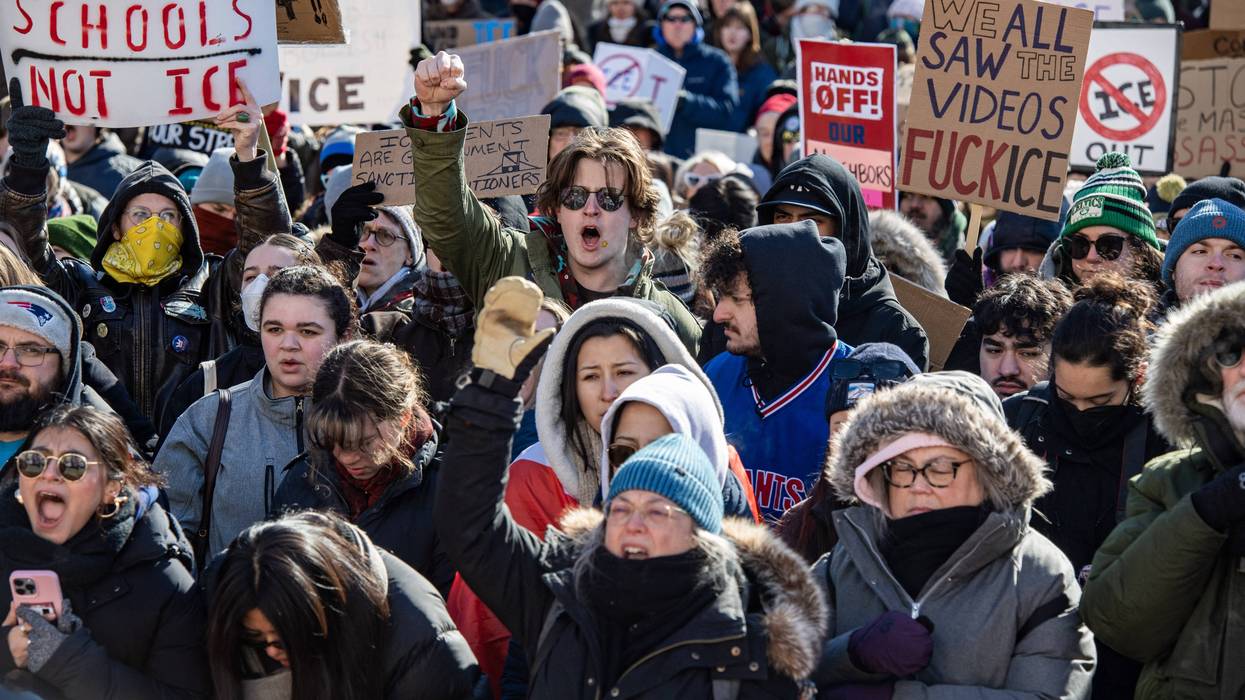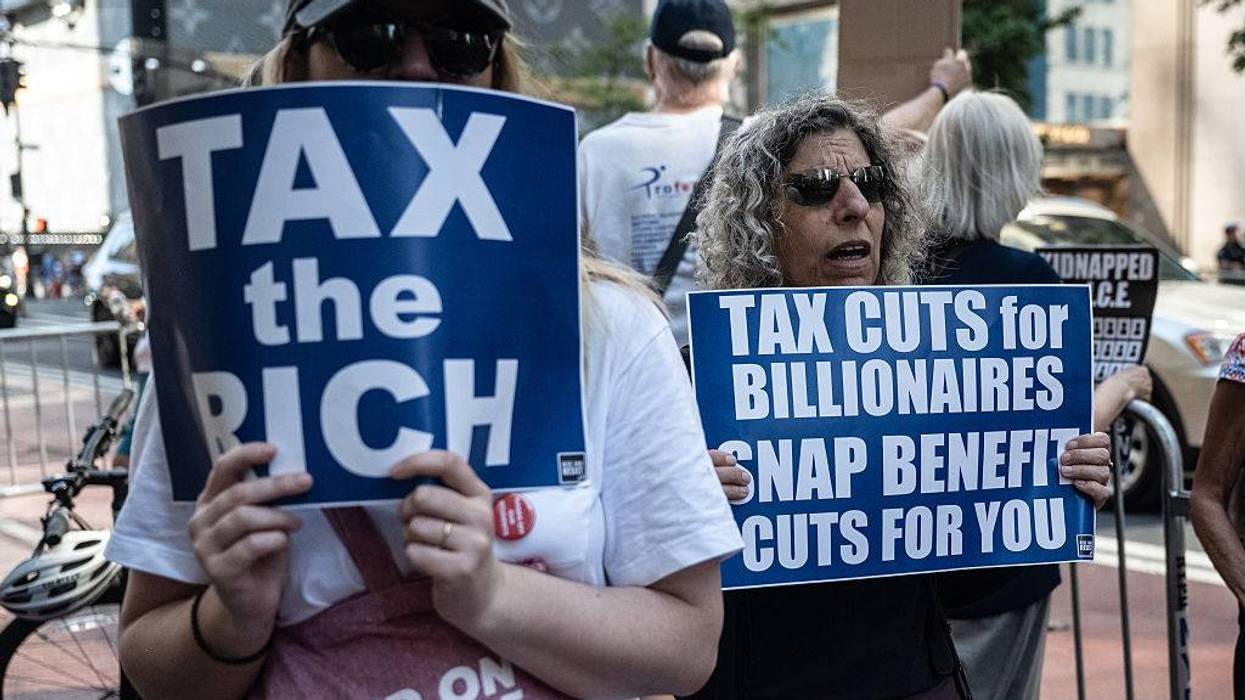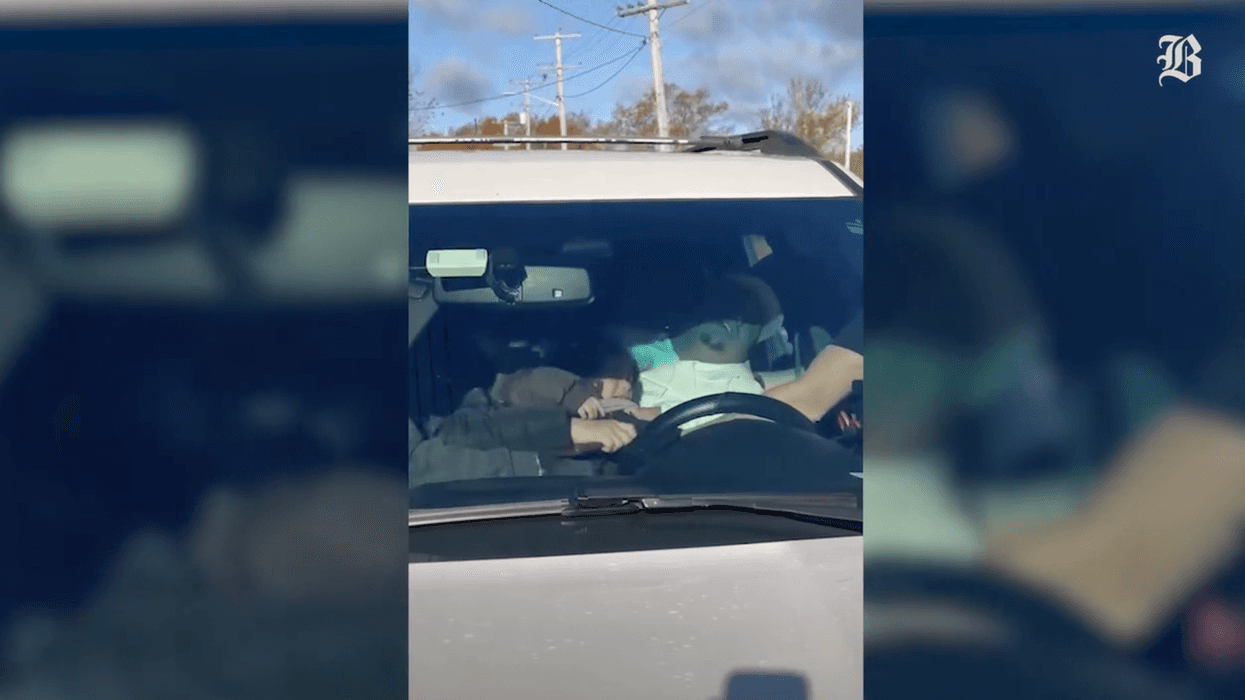Massachusetts Town Passes Resolution Urging State to Hold 'Lawless' ICE Agents Accountable
"I hope Amherst’s resolution kicks off a wave of similar resolutions in cities and towns across the state," said the measure's lead sponsor.
The town council of Amherst, Massachusetts passed a resolution on Monday urging state and local officials to hold federal immigration agents accountable for violating the Commonwealth's laws, a move that advocates hailed as a model for lawmakers across the United States.
The resolution—which says agents of Immigration and Customs Enforcement (ICE) and Customs and Border Protection (CBP) have "repeatedly committed acts of violence against Massachusetts residents"—passed with unanimous support from the nine councilors who participated in the vote.
"ICE’s illegal operations have impacted residents of Amherst and surrounding communities directly, and we know that when any of our neighbors have their rights stripped away, none of us can take those rights for granted," Councilor Jill Brevik, the resolution's lead sponsor, said in a statement following the vote. "Silence and complying in advance created the environment that has enabled ICE agents to commit crimes and human rights abuses."
"As a result, it is critically important for our local and state-level leaders to speak loudly and take clear action to fight back and change course," Brevik added. "The work doesn’t end here, and I look forward to staying engaged. And I hope Amherst’s resolution kicks off a wave of similar resolutions in cities and towns across the state."
The resolution calls on Massachusetts Gov. Maura Healey, a Democrat, to "immediately cease all cooperation agreements with ICE," pointing to specific actions by federal immigration agents that "may be crimes under Massachusetts law, including but not limited to assault and battery, kidnapping, violation of constitutional rights, and assault and battery for the purpose of intimidation, and conspiracy, which may involve senior federal officials" including President Donald Trump.
Among the incidents highlighted by the resolution is ICE's 2025 abduction of Tufts University PhD student Rümeysa Öztürk, who was targeted for deportation for writing an op-ed criticizing the US-backed Israeli assault on Gaza. Last month, an immigration judge terminated removal proceedings against Öztürk.
The resolution also condemns ICE and CBP agents for "illegally kidnapping an 18-year old with no warrant and detaining him for a week with no access to showers or sufficient food in Worcester County; illegally kidnapping and assaulting a lawful permanent resident in Essex County, stealing his belongings, and threatening his legal status; assaulting a resident of Middlesex County, smashing his car’s windows and dragging him from it; detaining a first-year college student at Boston Logan Airport and forcing her out of the country in defiance of a court order; and repeatedly using unlawfully excessive force in encounters with Massachusetts resident."
“When our constitutional rights, our civil liberties, and our very lives come under attack by Trump’s lawless agents, we need every public official to stand with the people to fight back,” Jeff Conant, an Amherst resident who helped organize support for the newly approved measure, said Monday. “This commonsense resolution by our town council should serve as a model for every town and city in the Commonwealth and across the nation.”
The resolution demands that state and local officials "take affirmative steps to protect" Massachusetts residents, including by:
- Making a public statement confirming the principles that federal officials and agents are subject to state criminal jurisdiction;
- Taking affirmative steps to collect evidence of criminal acts committed by federal agents, including through the creation and dissemination of an accessible online tool for citizens to submit evidence; and
- Issuing guidelines to local law enforcement to preserve evidence, especially in cases of federal noncooperation with investigations, and beginning investigations where evidence indicates that a crime has been committed, regardless of the power or prestige of the federal officeholder who is suspected of committing said crime.
John Bonifaz, constitutional attorney and president of Free Speech For People—an advocacy group that helped draft the resolution—said that "state and local prosecutors in Massachusetts and across the country have a sworn duty to enforce state criminal laws against federal agents who commit crimes in their states."
"There is no such thing as absolute immunity for federal ICE agents. While the Supremacy Clause of the Constitution allows federal agents to carry out their lawful duties across the country, they do not have immunity to commit murder, to kidnap, to commit assault and battery, and to engage in illegal detentions," he continued. "Massachusetts Attorney General Andrea Campbell and district attorneys across Massachusetts must enforce state criminal laws against ICE agents for their unlawful actions in this state."


